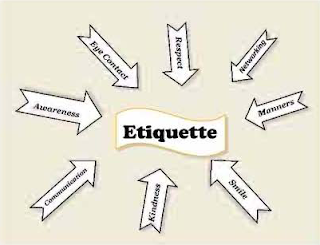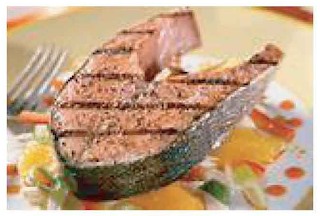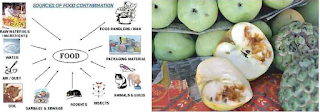1. Warm up activity:
□ Discuss in a group:
What is a short story? What are some of the essential elements of a short story?
□ Before reading the story below, discuss the following questions and check if the story helps you to answer them.
a. What is a balanced diet? Why do we need to take a balanced diet?
b. Why do some people become overweight?
2. Now read the story (slightly abridged) and answer the questions that follow.
The story, "The Luncheon," is by William Somerset Maugham (1874-1965). Maugham was a British novelist, playwright and short story writer whose work is characterized by a clear, lucid style, and a profound understanding of human nature. "The Luncheon" is about a lady admirer of the writer who managed to get a luncheon invitation from him to an expensive Paris restaurant twenty years ago. With humour and irony, the writer describes the lady's lavish eating at his expense and what happened to her twenty years later.
The Luncheon
William Somerset Maugham
I caught sight of her at the play, and in answer to her beckoning, I went over during the interval and sat down beside her. It was long since I had last seen her, and if someone had not mentioned her name I hardly think I would have recognized her.
She addressed me brightly.
"Well, it's many years since we first met. How time does fly! We're none of us getting any younger. Do you remember the first time I saw you? You asked me to luncheon."
Did I remember?
It was twenty years ago and I was living in Paris. I had a tiny apartment in the Latin quarter overlooking a cemetery, and I was earning barely enough money to keep body and soul together. She had read a book of mine and had written to me about it. I answered, thanking her, and presently I received from her another letter saying that she was passing through Paris and would like to have a chat with me; but her time was limited, and the only free moment she had was on the following Thursday; she was spending the morning at the Luxembourg and would I give her a little luncheon at Foyot's afterwards? Foyot's is a restaurant at which the French senators eat, and it was so far beyond my means that I had never even thought of going there. But I was flattered, and I was too young to have learned to say no to a woman.... I had eighty francs (gold francs) to last me the rest of the month, and a modest luncheon should not cost more than fifteen. If I cut out coffee for the next two weeks I could manage well enough.
I answered that I would meet my friend-by correspondence-at Foyot's on Thursday at half-past twelve. She was not so young as I expected and in appearance imposing rather than attractive. She was, in fact, a woman of forty ... and she gave me the impression of having more teeth, white and large and even, than were necessary for any practical purpose. She was talkative, but since she seemed inclined to talk about me I was prepared to be an attentive listener.
I was startled when the bill of fare was brought, for the prices were a great deal higher than I had anticipated. But she reassured me.
"I never eat anything for luncheon," she said.
"Oh, don't say that!" I answered generously.
"I never eat more than one thing. I think people eat far too much nowadays. A little fish, perhaps. I wonder if they have any salmon."
Well, it was early in the year for salmon and it was not on the bill of fare, but I asked the waiter if there was any. Yes, a beautiful salmon had just come in, it was the first they had had. I ordered it for my guest. The waiter asked her if she would have something while it was being cooked.
"No," she answered, "I never eat more than one thing unless you have a little caviare, I never mind caviare."
My heart sank a little. I knew I could not afford caviare, but I could not very well tell her that. I told the waiter by all means to bring caviare. For myself I chose the cheapest dish on the menu and that was a mutton chop.
"I think you are unwise to eat meat," she said. "I don't know how you can expect to work after eating heavy things like chops. I don't believe in overloading my stomach." Then came the question of drink.
"I never drink anything for luncheon," she said.
"Neither do I," I answered promptly.
"Except white wine," she proceeded as though I had not spoken.
"These French white wines are so light. They're wonderful for the digestion."
"What would you like?" I asked, hospitable still, but not exactly effusive.
She gave me a bright and amicable flash of her white teeth.
"My doctor won't let me drink anything but champagne."
I fancy I turned a trifle pale. I ordered half a bottle. I mentioned casually that my doctor had absolutely forbidden me to drink champagne.
"What are you going to drink, then?" "Water."
She ate the caviare and she ate the salmon. She talked gaily of art and literature and music. But I wondered what the bill would come to. When my mutton chop arrived she took me quite seriously to task.
"I see that you're in the habit of eating a heavy luncheon. Tm sure it's a mistake. Why don't you follow my example and just eat one thing? I'm sure you'd feel ever so much better for it."
"I am only going to eat one thing." I said, as the waiter came again with the bill of fare. She waved him aside with an airy gesture.
"No. no. I never eat anything for luncheon. Just a bite, I never want more than that, and I eat that more as an excuse for conversation than anything else. 1 couldn't possibly eat anything more unless they had some of those giant asparagus. I should be sorry to leave Paris without having some of them."
My heart sank. I had seen them in the shops, and I knew that they were horribly expensive. My mouth had often watered at the sight of them.
"Madame wants to know if you have any of those giant asparagus." I asked the waiter.
I tried with all my might to will him to say no. A happy smile spread over his broad, priest-like face, and he assured me that they had some so large, so splendid, so tender, that it was a marvel.
"I'm not in the least hungry," my guest sighed, 'but if you insist I don't mind having some asparagus.'
I ordered them.
"Aren't you going to have any?" "No, I never eat asparagus."
"I know there are people who don't like them. The fact is, you ruin your palate by all the meat you eat."
We waited for the asparagus to be cooked. Panic seized me. It was not a question now of how much money I should have left over for the rest of the month, but whether I had enough to pay the bill.
The asparagus appeared. They were enormous, succulent, and appetizing. The smell of the melted butter tickled my nostrils ....
"Coffee?" I said.
"Yes, just an ice cream and coffee," she answered.
I was past caring now. So I ordered coffee for myself and an ice cream and coffee for her.
"You know, there's one thing I thoroughly believe in," she said, as she ate the ice cream. "One should always get up from a meal feeling one could eat a little more."
"Are you still hungry?' I asked faintly.
"Oh, no, I'm not hungry; you see, I don't eat luncheon. I have a cup of coffee in the morning and then dinner, but I never eat more than one thing for luncheon. I was speaking for you."
"Oh, I see!"
Then a terrible thing happened. While we were waiting for the coffee, the head waiter, with an ingratiating smile on his false face, came up to us bearing a large
basket full of huge peaches. They had the blush of an innocent girl; they had the rich tone of an Italian landscape. But surely peaches were not in season then? Lord knew what they cost.
"You see, you've filled your stomach with a lot of meat"-my one miserable little chop-"and you can't eat any more. But I've just had a snack and I shall enjoy a peach".
The bill came and when I paid it I found that I had only enough for a quite inadequate tip. Her eyes rested for an instant on the three francs I left for the waiter, and I knew that she thought me mean. But when I walked out of the restaurant I had the whole month before me and not a penny in my pocket.
"Follow my example," she said as we shook hand, and never eat more than one thing for luncheon."
"I'll do better than that", I retorted. "I'll eat nothing for dinner to-night."
"Humorist!" she cried gaily, jumping into a cab, "you're quite a humorist!"
But I have had my revenge at last. I do not believe that I am a vindictive man, but when the immortal gods take a hand in the matter it is pardonable to observe the result with complacency. Today she weighs twenty-one stone.
The meanings of some words and terms from the story are given below. Read the story a second time, and if you still have words you don't know the meanings of find them in a dictionary.
Luncheon : a formal lunch
play : a theatre performance
Latin quarter : a section of Paris popular with students and writes like the story's narrator
cemetery : a large burial ground senator: a member of a senate, a lawmaker imposing : impressive in appearance startle : give sudden shock bill of fare : a menu
generous : liberal, showing readiness to give something
caviare : the mass of eggs of a large fish, especially sturgeon, eaten as a delicacy
hospitable: friendly, genial
effusive : showing pleasure or emotion in an unrestrained manner amicable : friendly airy: causal
ingratiating : intended to gain someone's approval or favour
humorist: a humourous writer
vindictive: revengeful
complacency : uncritical self-satisfaction
stone : 14 pounds
3. Find out the meanings of the following idioms:
a. beyond one's means
b. cut out
c. take someone to task
4. How did the lady manage to get the luncheon invitation from the writer?
5. Humour is the quality that makes something laughable and amusing. Find some instances of humour in the story.
6. The writer also uses irony in the story (find out the definition of irony elsewhere in your text book). What examples of irony can you find in the story?
7. How many items of food does the lady order? Why does the writer only order a mutton chop?
8. At one stage of the luncheon, the writer feels panicked. Why?
9. What is an asparagus? Find out the food value of asparagus.
10. The story is told in flashback. How does the lady look in the restaurant, and at the end of the story?
11. The lady obviously has a tendency to eat much. Write an essay on the bad effects of overeating. Keep the example of the lady in mind.
12. Fill in the blanks with appropriate prepositions:
While we were waiting......coffee, the head waiter, with a smile......his face came......to us, bearing a large basket full......huge peaches.
13. Find out 5 adjectives from the story and write sentences with them.
If you want read the next unit please click the link below:
Unit Four: Human Relationships





